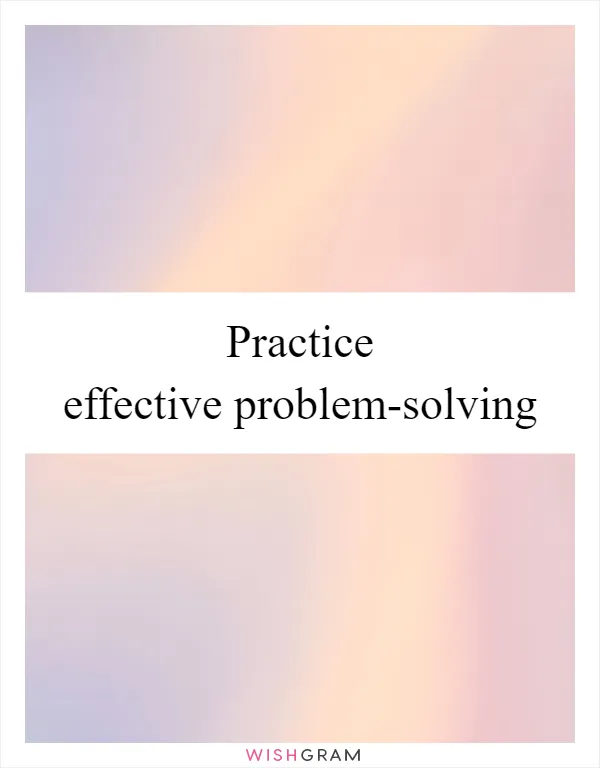Practice effective problem-solving
Self-improvement is a lifelong journey that requires continuous effort and dedication. One crucial aspect of self-improvement is the ability to practice effective problem-solving. Developing this skill can greatly enhance our personal growth and help us overcome obstacles that hinder our progress.
Effective problem-solving involves a systematic approach to identifying, analyzing, and resolving challenges. It requires us to think critically, evaluate different options, and make informed decisions. By honing this skill, we can tackle various issues that arise in our personal and professional lives, leading to a more fulfilling and successful existence.
To practice effective problem-solving, it is essential to start by acknowledging the problem at hand. Often, we tend to ignore or avoid problems, hoping they will resolve themselves. However, this approach only prolongs the issue and prevents us from finding a solution. By confronting the problem head-on, we can take the first step towards resolving it.
Once we have identified the problem, the next step is to analyze it thoroughly. This involves breaking down the issue into smaller components, understanding its root causes, and examining its potential consequences. By gaining a comprehensive understanding of the problem, we can develop a more effective strategy to address it.
After analyzing the problem, it is crucial to explore different solutions. This requires creativity and open-mindedness. Instead of settling for the first solution that comes to mind, we should consider multiple alternatives. Brainstorming, seeking advice from others, and researching different approaches can help us generate a range of potential solutions.
Once we have a list of possible solutions, it is important to evaluate each option carefully. We should consider the feasibility, potential outcomes, and long-term implications of each solution. This evaluation process allows us to select the most appropriate and effective solution for the problem at hand.
Implementing the chosen solution is the next step in effective problem-solving. This requires commitment, perseverance, and adaptability. It is essential to take action promptly and monitor the progress closely. If the chosen solution does not yield the desired results, we should be willing to reassess and modify our approach accordingly.
Reflecting on the problem-solving process is crucial for self-improvement. By analyzing our actions and outcomes, we can learn from our experiences and refine our problem-solving skills. This reflection allows us to identify areas for improvement and develop strategies to enhance our problem-solving abilities in the future.
